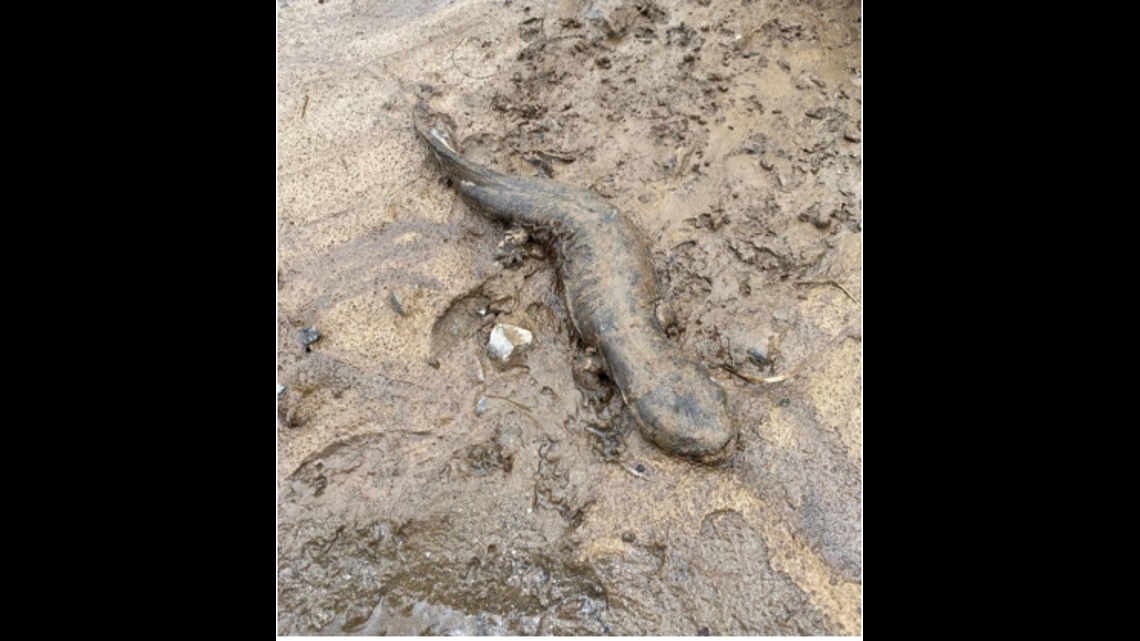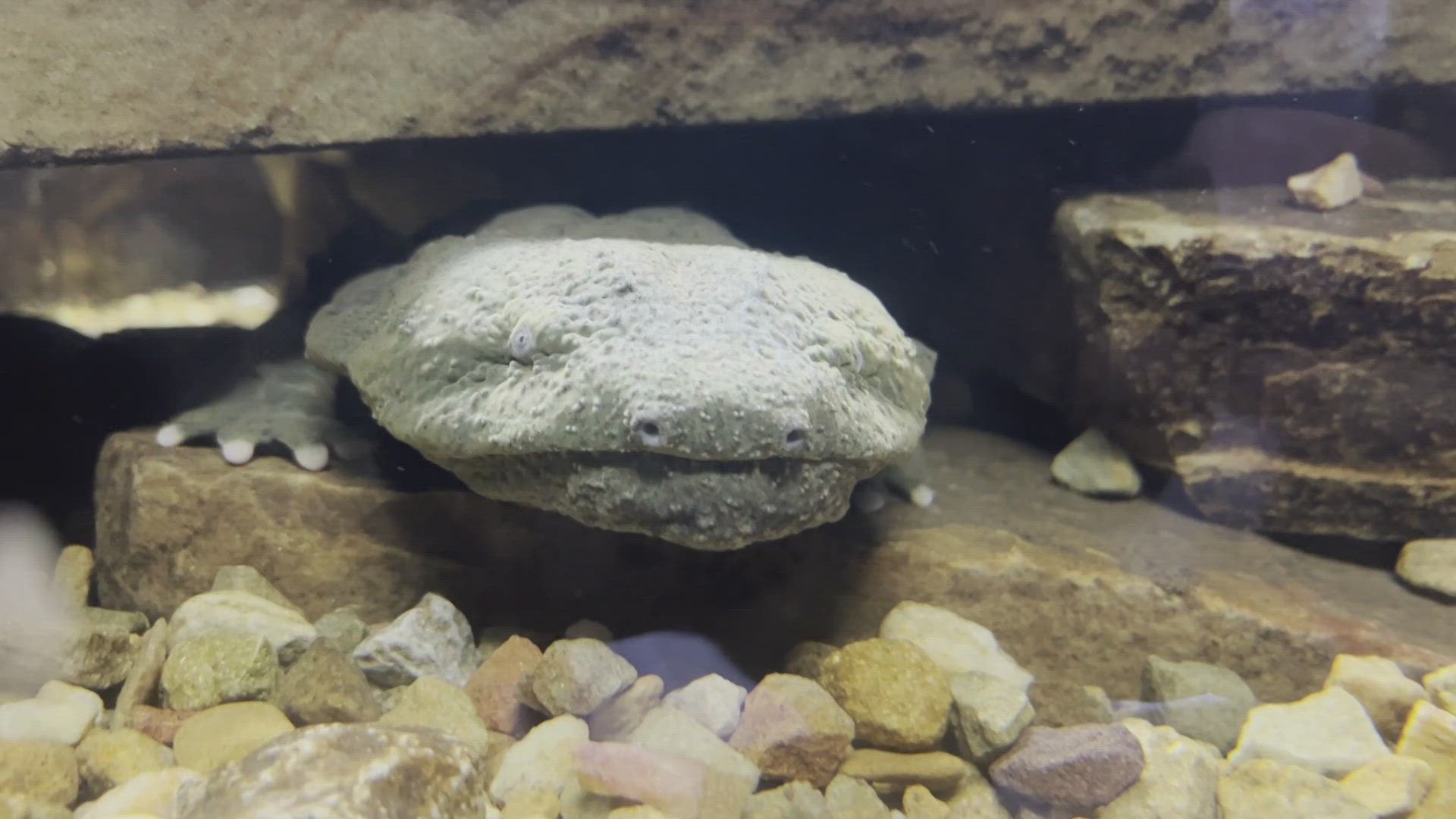KNOXVILLE, Tenn. — The Eastern Hellbender, a large and slimy salamander lives, in places with clean fresh water. Because of pollution-related concerns, experts said the species has been hard to find. Their hotspot habitats, in rivers and streams throughout the Appalachian mountains, were decimated by Hurricane Helene. Scientists have found them dead on river banks after the flooding.
The United States Fish and Wildlife Service is proposing the species be listed in the Endangered Species Act, which could grant federal and state money to protect the species and their habitat.
Michael Ogle is the Curator of Herpetology and Birds at Zoo Knoxville. His daughter named the zoo's two hellbenders "Pancake" and "Waffle."
"Hellbenders are really unique," Ogle said. "They're really important because if you find them in streams and rivers, that means you're in a healthy stream and river, which is good for all of us."
Zoo Knoxville is one of many agencies tracking the salamanders, which thrive in clean water environments.
"These animals can live a really long time, 20 to 30 years," Ogle said. "You can still see that you have hellbenders. But if you're not seeing those youngsters coming up, then eventually the population is going to disappear."
Ogle said the US Fish and Wildlife Service was already discussing whether to put the species on the endangered species list before the hurricane. After Hurricane Helene, many agree its the best path forward.
Photos of the salamanders washing up on riverbanks are one symbol of the flood wreaking havoc on the Appalachian ecosystem.


Will Harlan's team at the Center for Biological Diversity in Asheville has seen the damage to the hellbender's habitat first-hand in Western North Carolina.
"The places where Helene hit hardest happened to be the exact places where hellbenders were doing the best," Harlan said. "The Cane River, the headwaters of the French Broad River, the Toe River — all of these rivers were just annihilated."
Harlan said the habitat that needs to be protected for these amphibians is the same rivers and streams many in Appalachia rely on for drinking water and recreation.
"If FEMA funding runs out, if state and federal funding is not enough to help rebuild communities affected by Helene, the Endangered Species Act funding for hellbenders could actually play a really important role," Harlan said.
There is a 60-day period for public comment on the issue, which you can find here.

